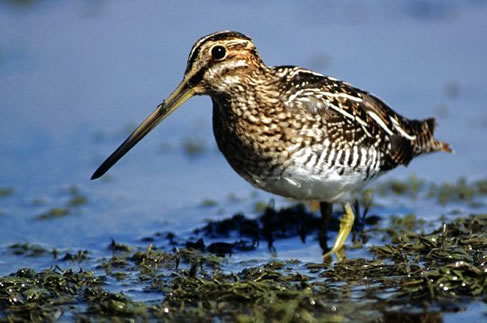Today, unbelievably, we celebrate the tenth anniversary of the Hooting Yard Soup Committee. That is to say, it is precisely ten years ago today that this piece, entitled Soup Committee, first appeared at Hooting Yard:
Dobson rarely sought collaborators in his pamphleteering work, preferring to plough his furrow alone. Occasionally, however, his schemes were so ambitious that it was necessary to call in help. One such plan led to the formation of what became known as the Soup Committee.
Dobson woke up one wintry morning with an idea in his head. This was not uncommon, but usually his ideas could be – and were – dashed off in a brief pamphlet. Not so the gigantic multi-volume work he pictured in his mind, a compendium of every known soup recipe ever conceived, throughout human history, from the dawn of time to today’s date, across all cultures and civilisations. Even Dobson realised that he could not accomplish so mighty a project single-handed, so he asked Marigold Chew to draw up a list of likely contributors. The Soup Committee was her idea. Reasoning that if she invited people to take part in a Dobson plan they would probably decline, and thus shatter the pamphleteer’s already shattered nerves, she used her usual hardline tactics. The letter she sent out to over eight hundred unsuspecting souls is preserved in the Dobson Archive.
Dear Soup Person, it read, This is to inform you that you have been empanelled on to the Soup Committee. Your empanelment is effective from today’s date and remains in force until such time as you die. The full implications of your membership of the Committee will follow by separate post, but you had better start gathering soup recipes right now. Yours decisively, Marigold Chew, pp Dobson.
The pamphleteer himself decided to begin by garnering soup recipes from the Old and New Testaments, and set about rereading his Bible with pencil and notepad in hand. He was distraught, at the end of this exercise, to discover that the word “soup” appears nowhere in the Authorised Version, or King James Bible, which was the edition he swore by. He went back to the beginning and realised that “pottage” was possibly a synonym for “soup”, although it might also mean what we know as “stew”. Undeterred, Dobson was able to fill a couple of pages of his notepad.
In Genesis 25, for example, we have, 29 And Jacob sod pottage: and Esau came from the field, and he was faint, 30 And Esau said to Jacob, Feed me, I pray thee, with that same red pottage; for I am faint: therefore was his name called Edom, and 34 Then Jacob gave Esau bread and pottage of lentiles; and he did eat and drink, and rose up, and went his way: thus Esau despised his birthright. This is elsewhere translated as And Esau sold his birthright for a mess of pottage, of course, a resounding phrase we would all do well to remember.
Moving on to the second book of Kings, chapter four, after having soup for lunch, Dobson read 38 And Elisha came again to Gilgal: and there was a dearth in the land; and the sons of the prophets were sitting before him: and he said unto his servant, Set on the great pot, and seethe pottage for the sons of the prophets, 39 And one went out into the field to gather herbs, and found a wild vine, and gathered thereof wild gourds his lap full, and came and shred them into the pot of pottage: for they knew them not, and finally 40 So they poured out for the men to eat. And it came to pass, as they were eating of the pottage, that they cried out, and said, O thou man of God, there is death in the pot. And they could not eat thereof.
Towards the end of the Old Testament, Dobson found one last mention of soup, or stew, in Haggai 2: 12 If one bear holy flesh in the skirt of his garment, and with his skirt do touch bread, or pottage, or wine, or oil, or any meat, shall it be holy? And the priests answered and said, No.
Seven verses, but presumably only three different soups, the most interesting to Dobson being the one in Kings which has “death in the pot”. What was this poisonous potion? We know that Dobson was a vain, even arrogant pamphleteer, but he did have some small shred of humility. He recognised that if his great work on soup was to be definitive, every single recipe would have to be authorised by an expert. Marigold Chew sent a second letter to the members of the Committee.
Dear Empanelled Soup Committee Person, she wrote, As a matter of urgency, further detail is required on the wild gourds which were shredded into the pottage mentioned in 2 Kings 4:39, as well as the ingredients already in the pot, which, as you know, contained death. Send your reply by courier. Yours tenaciously, Marigold Chew, pp Dobson.
Not a single one of the recipients ever replied. Dobson himself soon lost interest in soup recipes, filed his notes away, and embarked that very same winter on a series of pamphlets about sodium, postage stamps, the manufacture of church bells, loosely-fitting cardigans, gutta percha price fluctuations and Plovdiv. One by one, over the years, the Soup Committee members died out. It is thought that only three of them are still alive, one in Bastwick, one in Cleves, and one, now 104 years old, fit as a fiddle, plying a ferry across an inlet at an unidentified seaside resort battered by gales, battered by storms, battered by gales, battered.

